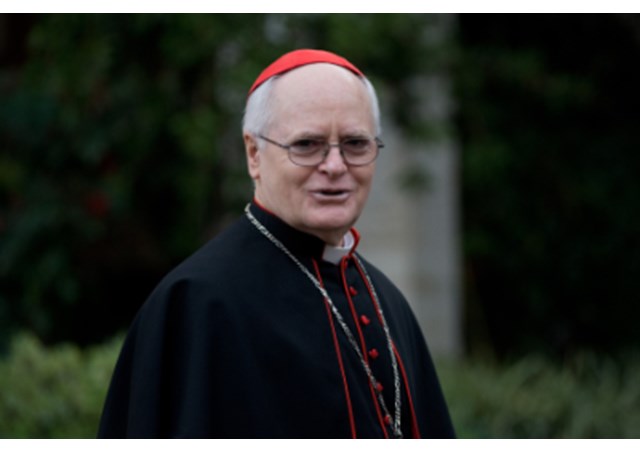
Cardinal Scherer: Synod a process of discernment

(Vatican Radio) By now, the narrative is familiar: one of lines drawn in the Synod Hall, with ranks of so-called liberals and conservatives formed on either side and braced for action. It is, admittedly, a captivating story.
Is it true?
The Archbishop of São Paulo, Brazil, Cardinal Odilo Pedro Scherer offered a more measured view of matters to Vatican Radio.
“The Synod is a consultative body,” Cardinal Scherer said – a point lost on many of those following the assembly whether inside or outside the Church’s fold. “Human nature,” he explained, “the nature of the family itself, the Christian principles [underlying] the family and marriage, can’t really be changed.” Nevertheless, “There are many things of a cultural, a local nature, even historically [well-established], which could be changed – and we are reflecting on all this, and we will continue to reflect on this,” he continued, adding that any decision that may come will be the Holy Father’s to make.
Still, much talk of reform of Church practices preceded the convening of the Extraordinary Assembly, and that talk has raised both hopes and concerns. “Many people still think that there is no possibility to obtain a declaration of nullity [an ‘annulment’ in common parlance], or there is confusion – people still believe that [a declaration of marital] nullity is the same as a divorce, only it is not,” said Cardinal Scherer. “The Church is clear on this,” he continued, “what is missing is the real pastoral possibility,” for people to avail themselves of existing structures. “It is on this that there is much insistence,” explained the Cardinal-Archbishop of São Paulo, “on making the Canon Law services of the Church more pastoral, in order to help the couples who have a right to a sentence from the Church regarding their situation.”
What does “making Canon Law services more pastoral,” mean, on a practical level?
For Cardinal Scherer, the issue is primarily one of access to the Church’s legal system and education about what that system is designed – and not designed – to do. “In this vein, there is talk of ‘lightening’ the procedures in marriage nullity cases, of access to Church courts, [and] of ways to ‘streamline (It. Snellire – literally ‘to slim and tone’)’ the procedures so that cases do not take too long, or cost too much money [to adjudicate] for many people,” adding that the process can in some cases be extremely costly and time consuming. “This,” he said, “is a properly pastoral concern, rather than a question of legislative change.”
Cardinal Scherer also sought to put the present moment in context, saying that this particular historical moment is not the first in which the Church has been confronted with questions of how to witness the truth of the Gospel to a fallen world, and how best to help people in difficult life situations. “The Church is made of holy sinners (It. santi peccatori),” he said, adding that this is true also insofar as marriage and family life are concerned. “We have people who live marriage – the married life – well, and God be praised!” he said. “We also have many couples who have problems, so they need to be sustained, they need to be encouraged; and then we have many couples who will not ever be able to ‘regularize’, let us say, their relationships – but they can live many aspects of the Christian life, they are members of the People of God, they are Christian, and they are to be encouraged to live that, which they are able to live – this idea is not new to the Church.”
| All the contents on this site are copyrighted ©. |


